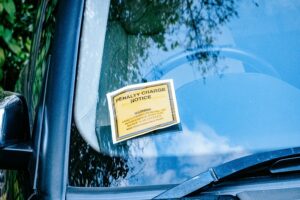Stopped by the police? Know your rights!

The news and social media are rife with heart-wrenching stories about the unnecessary and brutal killing of George Floyd.
Peaceful protests are being held across the world in response to the death of Mr Floyd at the hands of police officers in Minneapolis, USA.
Mr Floyd was arrested after he allegedly tried to use counterfeit money at a shop on Monday night. It is also claimed that he was under the influence in the driver’s seat of his vehicle.
A Police Officer knelt on the neck of Floyd, an unarmed black man, for nearly 9 minutes, despite the victim pleading that he was unable to breathe. Eyewitnesses have disputed that force was required, citing that Floyd was not resisting arrest.

The brutal events that unfolded after the arrest of George Floyd were in breach of human rights and police protocols.
However, it has brought to light the question of what rights police do have and how these entitlements are translated into UK law.
Read on for all you need to know about your constitutional rights if you are stopped and searched by police.
Police Procedures For Stop And Question
Legally the police can stop and question you at any time, but they can only search you depending on the specific situation.
A PCSO (Police Community Support Officer) must be in full uniform in order to stop and question you. However, a police officer is not always required to be wearing a uniform, but they must show you their identification and warrant card.
What Could A Police Officer Ask Me?
Being stopped by a police officer may be more common at present due to travel restrictions based on the COVID-19 outbreak. So, an officer could stop and enquire:
- What your full name is
- Where you are going
- Where you have been
- What you are doing in the area
- How far you have travelled
- Whom you are accompanied by
Legally you do not have to stop or answer any questions. However, this could result in raising suspicions. This could then be used as further cause to stop, search or arrest you.
Police Procedures For Stop And Search
Police officers in uniform have the power to stop any motor vehicle.
They can then request the driver produce their driving licence, insurance certificate, and or test certificate.
Legally a police officer can stop and search you if they have reasonable belief to suspect you are carrying or transporting:
- Stolen goods or property
- A weapon
- An item that could be used for committing a crime (for example, a crowbar)
- Illegal goods such as prohibited drugs
You can be stopped and searched without sufficient grounds. However, this can only be done once approved by a senior police official.
This can happen if it is suspected that:
- You are carrying or transporting a weapon or have used one
- A severe and violent event could take place
- You are in a specific location or area
If you are stopped and examined, you do not legally need to give your name and address, regardless of the type of search carried out.
However, if the police suspect you of committing an offence and you refuse to disclose your particulars, then they could have grounds to arrest you. This is because one of the necessities for an arrest is to determine a suspect’s name and address.
Antisocial Behaviour & Section 50
Antisocial behaviour is any action or set of actions that are likely to result in harassment, alarm, or distress to the public and is the same as the offence under Section 5 Public Order Act 1986.
The Section 50 Police Reform Act 2002 is used in cases of antisocial behaviour. If there is a reasonable belief that you are committing disruptive activities, then you can be required to disclose your name and address under this act.
The officer will need to be in uniform, and it is not sufficient for the police to presume that you are ‘going to’ partake in antisocial behaviour.
If you have been stopped and asked to give your details under Section 50, then ask the police to clarify:
- That they are using their powers under Section 50
- Ask them what you have done that qualifies as antisocial behaviour.
Before A Search
All stop and searches must be carried out with consideration, respect, and honour. The police officer should always seek the cooperation of an individual before a search, even if they initially object.
The police can use ‘reasonable force’ if you oppose being searched, and this could lead to you being arrested.
Before being searched, a police officer must advise of the following under PACE (Police and Criminal Evidence Act 1984):
- Their name and police station
- What they expect to find (for example, a weapon or drugs)
- The reason they want to search you (for example, if they suspect you are hiding something)
- Why they are legally allowed to search you
- Advice on how you can have a record of the search
Police Procedure And Removal Of Clothing
A police officer can ask you to remove your coat, jacket, and gloves in public. They can also put their hand inside your shoes, socks, or headwear if they have reasonable cause.
Moreover, they can also ask you to turn your pockets inside-out, or they will pat these areas down.
They can legally request that you to remove items you may be wearing for religious reasons and this can include a veil or turban.
To do this, they must:
- Take you somewhere else out of the public view
- Provide you with a reason for needing to remove these items
It is important to note that, if the officer requests you to remove more than your jacket or gloves, then they must be the same sex as you.
Besides, a strip search can only take place in a police station or a designated area. If the suspect is a minor (17 years of age or under), then a strip search must be carried out in the presence of an appropriate adult.
Key Takeaway
Events such as the devastating loss of George Floyd can only serve to heighten worry about police interactions, in particular being stopped and searched.
If you feel that you were treated disparately because of your ethnic background, gender, sex, age, religion or disability, you may have a reason to complain.
We hope that the above information can help you be sure of your rights. However, if you have concerns or feel that you have previously been mistreated in any way, then contact one of our criminal lawyers today for more information.
Do you need a solicitor?
Find a solicitor on Qredible in just a few easy steps















